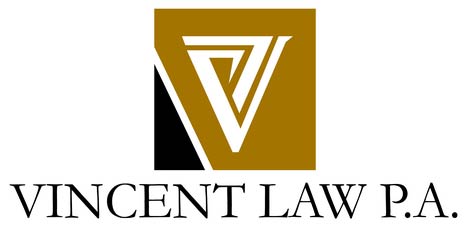Practice Areas
Probate & Trust Litigation
Probate
Probate is a legal process through which the assets of a deceased person are inventoried and distributed to pay creditors’ claims against the estate. If there are remaining assets, they are distributed to the heirs or beneficiaries. The court determines the validity of the will and oversees the process to ensure that the estate is properly administered.
There are three basic types of proceedings for administering the decedent’s estate:
Hidden
This type of proceeding is used where there are considerable assets and it is necessary to appoint a personal representative to act on behalf of the estate. Letters of administration will be issued to the personal representative so that he or she will be able to administer the estate. A formal administration MUST be filed by an attorney licensed to practice law in Florida, unless the personal representative is the sole beneficiary.
Formal Administration
This type of proceeding is used where there are considerable assets and it is necessary to appoint a personal representative to act on behalf of the estate. Letters of administration will be issued to the personal representative so that he or she will be able to administer the estate. A formal administration MUST be filed by an attorney licensed to practice law in Florida, unless the personal representative is the sole beneficiary.
Summary Administration
This type of proceeding may be filed when the value of the entire estate does not exceed $75,000 or when the decedent has been deceased for more than two years. If the decedent has been deceased for less than two years, a copy of the funeral bill is required.
Disposition of Personal Property without Administration
- Exceed the amount of funeral bill
- Include real estate
- Transfer loans
- Release assets from a safe deposit box
Probate attorney Arthur Vincent specializes in Florida Probate and Estate Planning Law.

Wills, Trusts & Estate Planning
Proper estate planning protects your family and assets when you are no longer here. An experienced estate attorney will ensure your assets are distributed according to your wishes either upon your death, when your beneficiaries are of age, or based upon your customized instructions. Vincent Law specializes in creating personalized estate plans so the distribution of your assets is not decided by a court.
Probate Litigation
At Vincent Law we can represent heirs, beneficiaries, personal representatives, trustees and other interested parties in complex probate-related disputes. We are sensitive to the emotional and often-trying aspects of facing a legal dispute after a loved one’s passing, and we work with our clients to pursue favorable outcomes as efficiently and, when appropriate, amicably as possible. The attorneys in our estate planning practice have significant experience in a broad range of estate litigation matters, including will contests, trust contests, creditor disputes and tax issues.
If a conflict or disagreement over a will or trust arises, our attorneys will first seek to resolve the matter outside of the litigation process. However, while negotiation, mediation and other forms of alternative dispute resolution (ADR) can successfully resolve many of types of probate-related disputes, certain matters will require litigation in court. In these situations, our lawyers advocate on behalf of our clients through trial and appeals, if applicable.
Who We Represent
At Vincent Law, our probate litigation lawyers serve clients who need help enforcing their legal rights or ensuring that their loved one’s final wishes are carried through. Our clients include:
Heirs
An heir is a family member who is entitled to a share of a person’s estate under Florida’s law of intestate succession. This means that he or she is entitled to a share of the estate in the absence of an estate plan. If a legally-enforceable estate plan exists, the estate plan will control over the law of intestate succession.
Beneficiaries
A beneficiary is an individual or entity (such as a charitable organization) that has been named as the recipient of all or a portion of a decedent’s estate in his or her estate plan. Beneficiary rights can be established through a will, trust, insurance contract, retirement account, payable-on-death (POD) bank account, or other estate planning tool.
Personal Representatives
A personal representative is the person (or company) tasked with administering a decedent’s probate estate. A personal representative may be named in the decedent’s will; or, if necessary, one will be appointed by the court.
Trustee
A trustee is the person (or company) appointed to administer the terms of a revocable or irrevocable trust. The trustee will be named in the trust origination documents and must generally administer the trust in accordance with the terms specified in the documents.
Other Interested Parties
We also represent other individuals and entities who have a possible financial interest in probate litigation. This includes individuals and entities that claim to be entitled to a share of the estate, trust protectors, and those seeking to be appointed as (or challenge the appointment of) a personal representative.
What is Probate?
Probate is the legal process used to pay a person’s debts and distribute his or her remaining assets to heirs and beneficiaries after death. But, it is important to note that not all of a person’s assets will necessarily be subject to probate. Trusts, POD accounts, and other non-probate transfers can all be used to distribute a person’s assets outside of probate.
In Florida, there are three primary types of probate: formal administration, summary administration, and disposition of personal property without administration.
Frequently Asked Questions
Hidden
This type of proceeding is used where there are considerable assets and it is necessary to appoint a personal representative to act on behalf of the estate. Letters of administration will be issued to the personal representative so that he or she will be able to administer the estate. A formal administration MUST be filed by an attorney licensed to practice law in Florida, unless the personal representative is the sole beneficiary.
What if my loved one died without an estate plan?
What if there are multiple versions of my loved one’s estate plan?
What if my loved one’s estate plan includes a will and a trust (or multiple trusts)?
What is a codicil?
Who can challenge a decedent’s will in Florida?
What is the statute of limitations for challenging a will in Florida?
Once you receive a Notice of Administration from the probate court, you only have 90 days to file a challenge to the decedent’s will. If you fail to timely file an objection with the court, you will likely lose your ability to challenge the will. Florida law allows for an extension of this time period for only one reason: “a misstatement by the personal representative regarding the time period within which an objection must be filed.” The law goes on to state that, “[t]he time period may not be extended for any other reason, including affirmative representation, failure to disclose information, or misconduct by the personal representative or any other person.”
How can a probate attorney prove that a will was executed without testamentary capacity or under undue influence?
Proving that a will was executed without testamentary capacity or under undue influence can be challenging. Often, the person seeking to challenge the will must rely on circumstantial evidence – evidence of events preceding the date of execution which suggest that the testator (the person who created the will) either lacked sufficient mental capacity or was in a position to be influenced into making decisions he or she would not have made independently.
However, each case is unique, and depending on the circumstances involved there could be clear evidence that your loved one’s will should not be enforced. If you are concerned that your loved one’s will may not reflect his or her final wishes, we can help you determine if you have grounds challenge the will.
Can I file an appeal if I am dissatisfied with the outcome of the probate process?
Can I represent myself in probate or trust litigation in Florida?
Experienced Legal Counsel for When You Need Help
Do you have questions about your rights or obligations in probate? If so, we encourage you to contact us for a confidential consultation. Vincent Law represents clients in probate litigation throughout Florida. If you have questions, you owe it to yourself and your loved ones to learn more about your situation. To speak with one of our experienced probate litigation attorneys in confidence, please call (954) 524-9494 or request an appointment online today.

